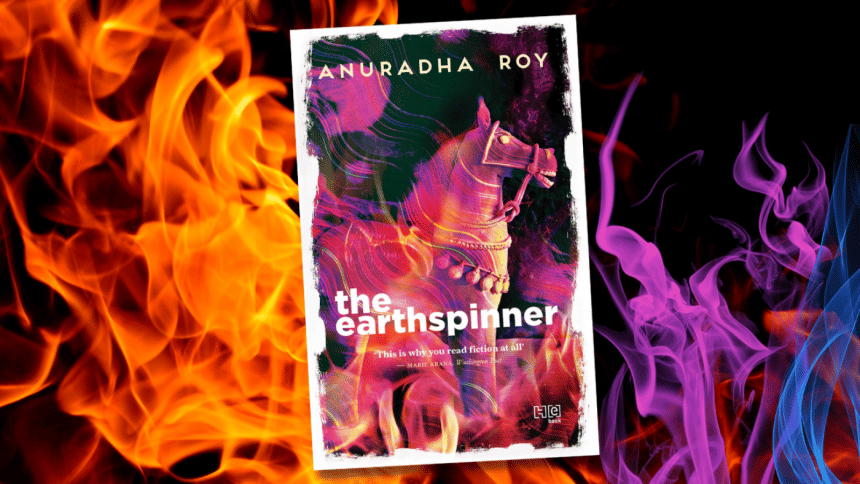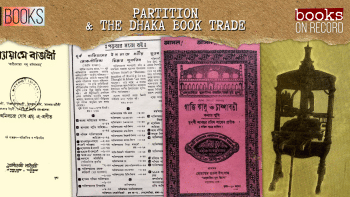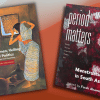Anuradha Roy's book of longing and belonging

I found myself holding Anuradha Roy's The Earthspinner when I returned to fiction after a few months' hiatus. It took me a while to get into the story and understand what it was all about.
The journey was perplexing. Was it a love story? Or one of unrequited love? Does it aim to provide social commentary? The answer, I found soon enough, was yes and no. It was all those things, and probably more.
"Home was my father asking us to be quiet because he wanted to listen to the cricket scores. It was the usual Sunday sound of the newsreader's posh voice, the dissonant trumpets of a wedding band, my mother at her typewriter in the bedroom, the clacking of it a shower of pebbles, her fingers moved so fast. A time when Tia and I were still close, when any place was home if the two of us were together with the reassuring voices of our parents who quarrelled out of old love."
With this vivid monologue, the narrator Sara's story starts to feel more like an attempt to retrace her home, or the idea of it. An idea, which fades a little every day, turning into letters from her mother and sister during her days abroad for studies, filled with incoherent updates of their lives, or long-distance phone calls where both parties find it increasingly difficult to convey any meaningful message. As Sara's journey of reclaiming her home through her memories begins, the story unfolds and introduces us to Elango, the potter and her mentor, and Zohra, a young Muslim woman and librarian. Soon, we embark on the story of the duo's 'forbidden' love—in a land where religion can be used and abused for any and every purpose, a subcontinent where religion has been used as means to a political end again and again in the form of bloodshed, lost homes and lost lives, both before and after the 1947 Partition.
Elango conceives his masterpiece, a horse sculpture, in his dreams at a time when he falls in love with Zohra. The dream comes alive with Anuradha Roy's beautiful imagery and subtle mythical undertones of the choice of the animal. In Hindu mythology, the figure of the flaming, underwater horse has been repeatedly used to represent balance and harmony—a state in which both the elements of fire and water can coexist. In the Mahabharata, the mythical horse Uchchaihshravas rose from the churning of the milk ocean, along with other treasures like Lakshmi, the goddess of fortune. It is only fitting that Elango's dream horse should represent his family's hopes for a fortune earned through his pottery, as well as his personal hopes for the power of his love outweighing religious differences. Elango dedicates his work to Zohra and gets her grandfather, Osman, a blind calligrapher, to engrave Urdu poetry on it, through which their two faiths would mesh into a beautiful and ever-lasting coexistence.
However, on the day of the grand revelation, the crowd spots the engravings on the clay horse and starts a riot, terming the Arabic script as "the language of mullahs".
What caught my attention is the subtlety with which Roy describes communal hatred and mob violence, keeping the tone from becoming nonchalant—the reason it does not turn into mere social commentary. The riot is narrated by Sara, a teenage girl, who in her disbelief at the sudden turn of events is only able to narrate bits and pieces of the horror she felt. But she does so with incomprehensible clarity and explains the gravity of the turmoil. Against this background, Anuradha Roy's prose evokes a sensory experience, where one can not only see the events unfold but also feel, smell, and touch them.
Forbidden love is a recurring theme that Sara has to witness again and again—through her complicated infatuation with Elango at a young age, through her friend Karin who finds herself in love with a woman. It all comes full circle. All the characters are reunited, not in a literal sense, but by common delicate threads that connect them—from the woman on the highway who dedicates herself to a lifelong quest to find her lost dog, to the dog itself finding its way to Elango and then to Sara's family.
And thus, when I finally finish reading the book, jumping from one emotion to another, the abrupt end catches me off guard. I realise what the experience was all about.
"If sea creatures lived on dry land as fossils, I think now, my father too has merely gone into another element, somewhere I will find him again in another form." I come back to this line by Sara and conclude that the book has been a story of longing all along. The longing of the woman on the highway for her lost life and her lost dog. Sara's longing for her lost father, her lost love and, to some extent, her lost home.
Some of it I have already felt enough to know what it means, some I'm about to. That's how The Earthspinner stays with me, as a muse and representation of my own longing, given life through Anuradha Roy's magic of words.
Nahaly Nafisa Khan is a writer and journalist. She is working as a sub-editor at The Daily Star's City Desk.

 For all latest news, follow The Daily Star's Google News channel.
For all latest news, follow The Daily Star's Google News channel. 








Comments